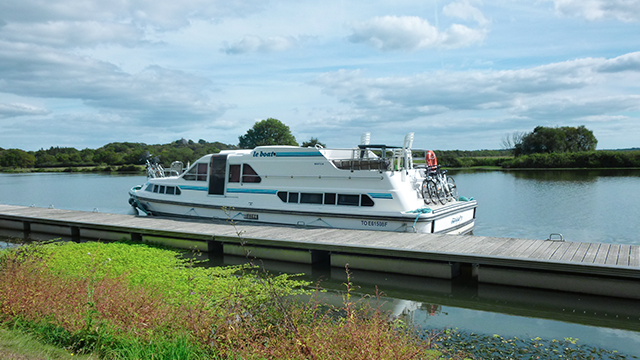Your guide to buying a second-hand boat
Buying a boat means dreaming. It’s about thinking long and hard about future years of happiness on board. Then, it’s about becoming an owner and finally making those dreams come true by enjoying the sweet pace of boating life and exploring the magnificent waterways.
To help you embark on this beautiful adventure, hassle-free, we have created a guide to the essential steps you need to take when buying your second-hand boat.
Ask yourself these questions before buying a used boat

When you start your research, make sure you know what boat size is right for you. Think about how you will use it. How many people will be cruising or living onboard at any time? Will you be cruising with friends and family or is this your new home? How many cabins will you need?
Then, think about the mooring place. It should be easily accessible if you are going to cruise often. Check the services offered by ports and marinas, and if you are planning a long trip, think about the dimensions: length and width. Mooring space prices depend on the length and sometimes the width of the boat. Also, think about the air and water draught, to be able to access all regions and countries without worries. For example, in France, small waterways can be quite shallow and some bridges very low.

How much does a second-hand boat cost?
You may already have an idea of your budget and have your financing in place. If not, set one and stick to it. We have many boats for sale to suit all budgets, so you’re bound to find the PERFECT boat for you.

In addition to the cost of buying your boat, be sure to take into account the cost of maintaining, mooring and operating your boat.
In order to do this, meeting boat owners is always very useful and will help you weigh up the pros and cons of new versus used boats purchase. Don’t hesitate to ask them questions about the real cost of owning a boat and what you need to factor into your budget (refit, maintenance, fuel, insurance etc).
Once you have answered the above and have identified models that match your criteria, here are the steps you should not miss:
What to look for in used boat sales ads?
Limit your research to ads that are clear and complete. A detailed and carefully written advert gives a good indication of the care taken of the boat. You don’t want to start your adventure with endless repair work, so ask the seller for details of the work to be done and the current condition of the unit you want. Be sure to ask about the age of the boat and its maintenance history. For your convenience, we only select models that are in good condition and well maintained.

What are the signs of a boat in poor condition?

Walk around the boat to look for signs of wear and tear. For example, discolouration of the top layer may be a sign of previous damage to the boat.
Blistering on the underwater sections of the boat, i.e. the submerged part of the hull, may be a sign of osmosis: a chemical reaction between the hull components and the water in which the boat cruises. This water gradually penetrates the gelcoat, which becomes porous as it ages. This water then comes into contact with the resin and fibre of the laminate that makes up the hull. Repairs for osmosis exists but they will add to the cost of maintaining your boat. So consider negotiating the price if your dream boat shows signs of osmosis.
If the boat is out of the water, check the condition of the hull, anodes and propeller blades. Some defaults are repairable, but if the hull and deck structures look like they are about to drift away, run!
What equipment should I check before buying a boat?
1. The engine
Give it the same importance as if you were buying a car. Before your visit, ask about the engine hours. Check that the engine itself does not look rusty and that the mountings are still sound. Check that the oil in the dipstick is not milky and that the belt is not cracked or worn.

2. The electrical wiring
Take a look at the electrical wiring. The electrical system can quickly be overloaded. Check that all plugs are secured: worn and loose wiring can cause electrolysis, an electro-chemical phenomenon that leads to a quick oxidation of the hull, which can lead to water entering the boat, corrosion and boat fires. In addition to the danger that represent poor electrical wiring, a complete rewiring can be expensive.
3. Gas, appliances, installations and equipment
Check the age and certificates of the appliances onboard to ensure that they are still up to standard.
Check which items are sold with the boat: Ropes, fire extinguishers, etc. In what condition are they? Do they need to be replaced?
Feeling overwhelmed by so many checks? Don’t panic, our expert Romuald Leblanc has carried them out for you and has selected, the best second-hand models for sale. They all meet strict quality criteria! Having been a chief boat mechanic for Emerald Star himself, he lived on his own boat for 9 years and knows boats perfectly. He will help you with all the procedures and is available to answer all of your questions. Contact him now!
Other articles

Boating etiquette: 8 common courtesies on the water

Introducing Liberty: houseboat holidays redefined
